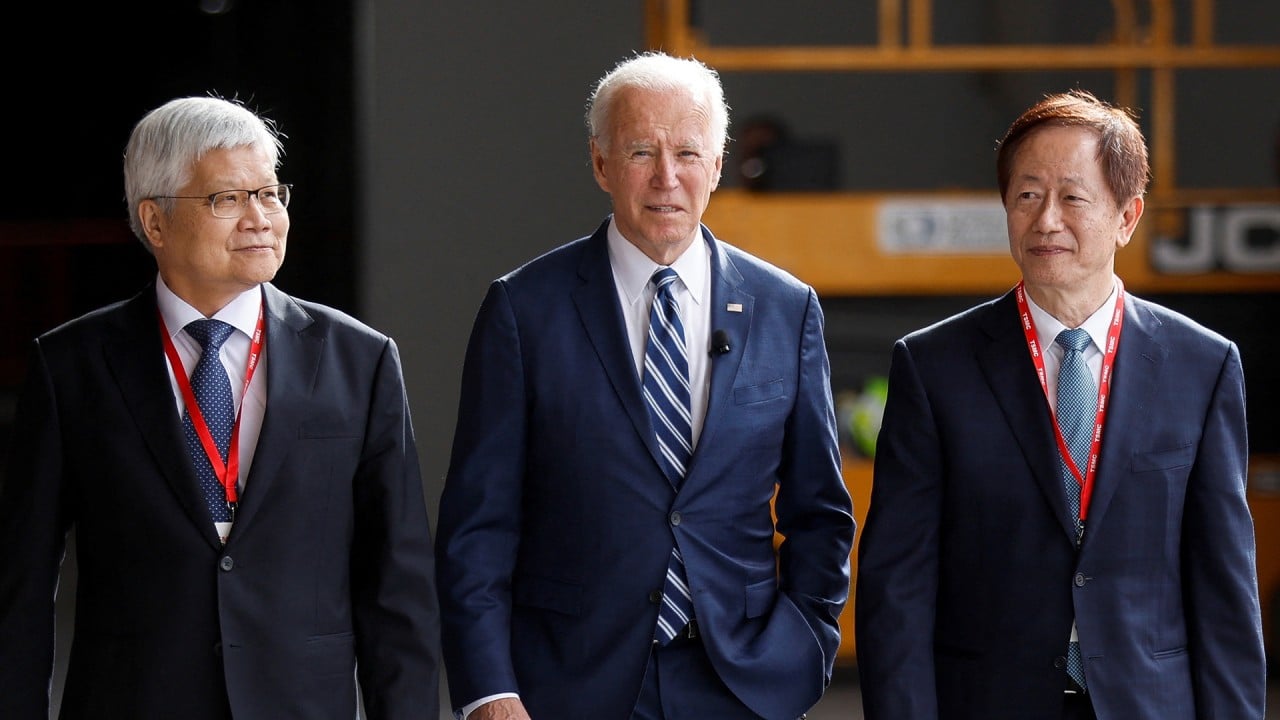
Why an EU-Taiwan chip foundry deal may not be such a bad thing for Beijing
- Any such deal is still a long way off as Taiwan seeks to rally EU support against threats of military action by Beijing while also avoiding EU autonomy in chipmaking
- But for Beijing, which frowns on foreign engagement with Taiwan’s government, it might actually be easier to deal with a Europe less dependent on Taiwanese chips
The European bloc has said it is in constant dialogue with like-minded partners, including Taiwan, with which it exchanges views on technological research, industrial policy and the supply chain.
At TSMC’s quarterly earnings conference call on October 13, CEO C.C. Wei said the company was in the preliminary stage of an evaluation on whether to invest in Europe and did not rule out any possibility. TSMC president Mark Liu stressed in June that the company did not yet have enough customers in Europe to justify investments in microchip factories there.
The problem is as much about business as it is about geopolitics. Taiwan must find a balance between rallying the EU against threats of military action by Beijing, while also avoiding Europe becoming autonomous in the production of microchips. And this is even though Wei is persuaded that building overseas foundries will not threaten Taiwan’s semiconductor edge.
If Europe no longer needs Taiwanese semiconductors, it becomes highly unlikely that it would respond to any military action by Beijing against the island. The risk for Taiwan is real as the EU Commission says that, in the short term, the European Chips Act will “enable the union and member states to understand the dynamics of semiconductor supply chains and to take measures to anticipate and address future chips crises”.
The Czech Republic’s foreign ministry has made it clear that Prague is working intensively with Taipei to build cooperation in the field of semiconductors. Several meetings have also taken place, both in the Czech Republic and Taiwan, including with several Taiwanese semiconductor manufacturers.
The Czech Republic wants to play a significant role in the semiconductor supply chain, but its strength is primarily in the area of chip research and development, and chip design. Still, the Czechs can offer their Taiwanese partners solid expertise in the areas of e-mobility and space technologies.

Slovakia has also stepped up tech dialogue with Taiwan. During a visit to Taiwan in June, Peter Osuský, chairman of the Slovakia-Taiwan Parliamentary Group, told me that the Slovak Ministry of Economy was ready to support the necessary steps to see the construction of microchip fabs, and that he had the feeling both parties were interested.
Europe understands that, to become a leader of technology in the semiconductor field, it must strengthen the capabilities that would allow it to “move from the lab to the fab” – and Taiwan’s know-how is the missing link.
Usually, the Chinese government lashes out at countries and foreign actors engaging with Taiwanese officials. But, as counterintuitive as it sounds, Beijing would do well to let the EU upgrade its semiconductor capacity with the help of Taiwan’s tech giants. It would be easier for Beijing to deal with a Europe less dependent on Taiwanese microchips.
Emanuele Scimia is an independent journalist and foreign affairs analyst


